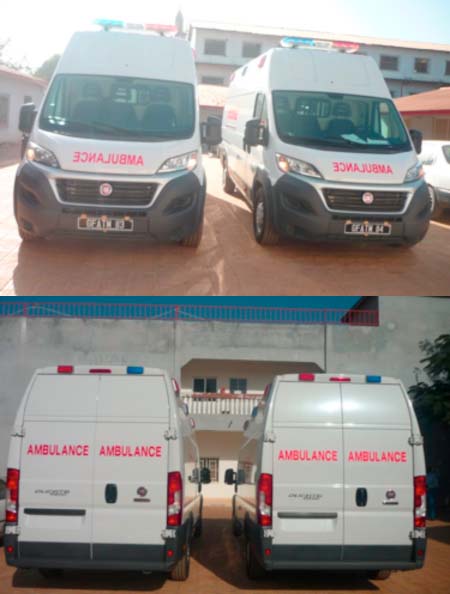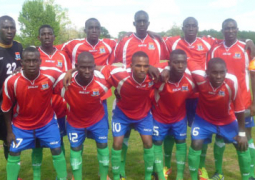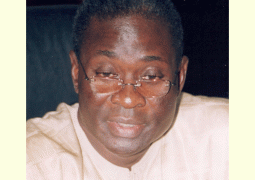
ActionAid
International The Gambia yesterday 2 February 2017 handed over two mobile
clinic vans, worth $98,000, to Worldview The Gambia, meant to ensure the
provision of timely and quality health care services to people affected by HIV
and AIDS.
The
primary focus of the mobile clinic vans is to provide health screenings and
primary care services to geographically and socially isolated populations.
The
services of the clinic are intended to provide episodic care to the most
vulnerable and, in some cases, serving as the primary medical provider for many
who lack immediate health care when it is most needed.
The
initiative will be providing free medical consultation for all communities
characterized by high concentration of poverty, large proportions of young
people and vulnerable groups with significant health challenges.
The
mobile health clinic will also provide teaching and awareness creation
initiatives, through the dissemination of relevant health and HIV and AIDS
messages.
The
community outreach to be provided by these vans will further be linked to the
strategically positioned wellness centres in key towns and regions across the
country, where various health interventions are being provided to promote
healthy behaviour change through the dissemination of different prevention
messages.
While
implementing the mobile vans services, the national HIV and AIDS response
programme will benefit from the promotion of greater access to RCH services,
Family Planning, HIV Counseling and Testing, condom distribution, treatment,
care and support to people who need such support.
Speaking
at the handing over ceremony held at ActionAid’s headquarters, Omar Badjie,
Executive Director of ActionAid International The Gambia, described the day as
an important step in the national effort to further reach out to communities
and individuals in hard-to-reach areas, in order to provide them with knowledge
and skills to prevent the spread of preventable diseases such as STIs,
including HIV and AIDS.
Mr
Badjie said for a long time they had been wondering how to reach out to
vulnerable people in remote areas with an intervention, which ensures quality,
efficiency, effectiveness and sustainability.
Investment
in the mobile vans will go a long way in attaining the above stated objectives
and, at the same time, ensure the delivery of comprehensive health care to high
risk populations and communities in the country, Badjie added.
The
usefulness of the vans will further become a conduit in improving behaviour
change targeting at risk groups in key affected populations, and the general
public in providing counselling and testing services, he continued.
Mr
Badjie looks forward to having regular meetings of key stakeholders including
the Ministry of Health, NAS, ActionAid, NACP, Worldview and other interested
stakeholders to discuss achievements, challenges and the way forward.
It
is expected that reports of the mobile clinic services will be shared by
Worldview with relevant players for reviewing information, and taking informed
decisions during programme coordination meetings hosted by the PRs, he also
said.
He
advised Worldview, the custodian of the vans, to take good care and proper
upkeep of the vans and ensure that maintenance is done when it is due.
“The
vans must be kept clean and hygienic at all times to ensure that they are not
the cause of disease transmission|.
He
further advised them to make sure they are guided by the operational guidelines
developed in the management of the vans, so that priority is given to the
purpose for which they have been bought over everything else.
Services
should always be provided to people in need irrespective of their social
status, religion and political affiliation, Badjie went on.
“I
will not conclude without extending our profound gratitude to the Global Fund
for providing the resources to support the procurement of the vans; the
government and people of The Gambia for the support and encouragement.
“I
wish to also extend warm and sincere appreciation to all our esteemed partners
in the fight against all diseases, especially HIV and AIDS, notably the
Ministry of Health, NAS, UNAIDS, WHO, HOC, CSOs and all SRs.
“My
sincere thanks go to the CCM for ensuring overall coordination and technical
support whenever needed,” he concluded.
Alpha
Khan, deputy Director National Aids Secretarial, said mobilizing health care is
a simple, obvious, and underutilized idea, adding that it is about taking
screenings, primary care, advice; and in some cases even hospital-grade trial
out of the building and as close as possible to people’s homes.
“By
doing this, we also get as close as possible to the early stages of health
issues. It seems obvious, and yet it’s rarely implemented.”
According
to Mr Khan, mobile clinics are uniquely qualified to provide high-quality care
to underserved populations with considerable cost savings.
If
mobile clinics are integrated well, they could serve as vital cogs in the
health system, he noted, adding that they are about delivering care closer to
and centred on patients, transporting them to a bigger health centre when
needed, and addressing a medical condition before it reaches another level.
In
view of The Gambia’s situation regarding KAPs, the WHO guidelines have been
adopted and gradually integrated to improve on the existing CSS approaches to
effectively respond to the needs of the KAPs.
Having
standalone services or specific service delivery points directed for this
particular targeted population will further increase and institutionalize
stigma and discrimination, he continued.
Worldview
chairperson Amadou Tall, in receiving the keys, said, “the handing over is
timely, as we have got a new government.”
He
added that the mobile clinic vans will enhance their work and, therefore,
thanked the donors.



